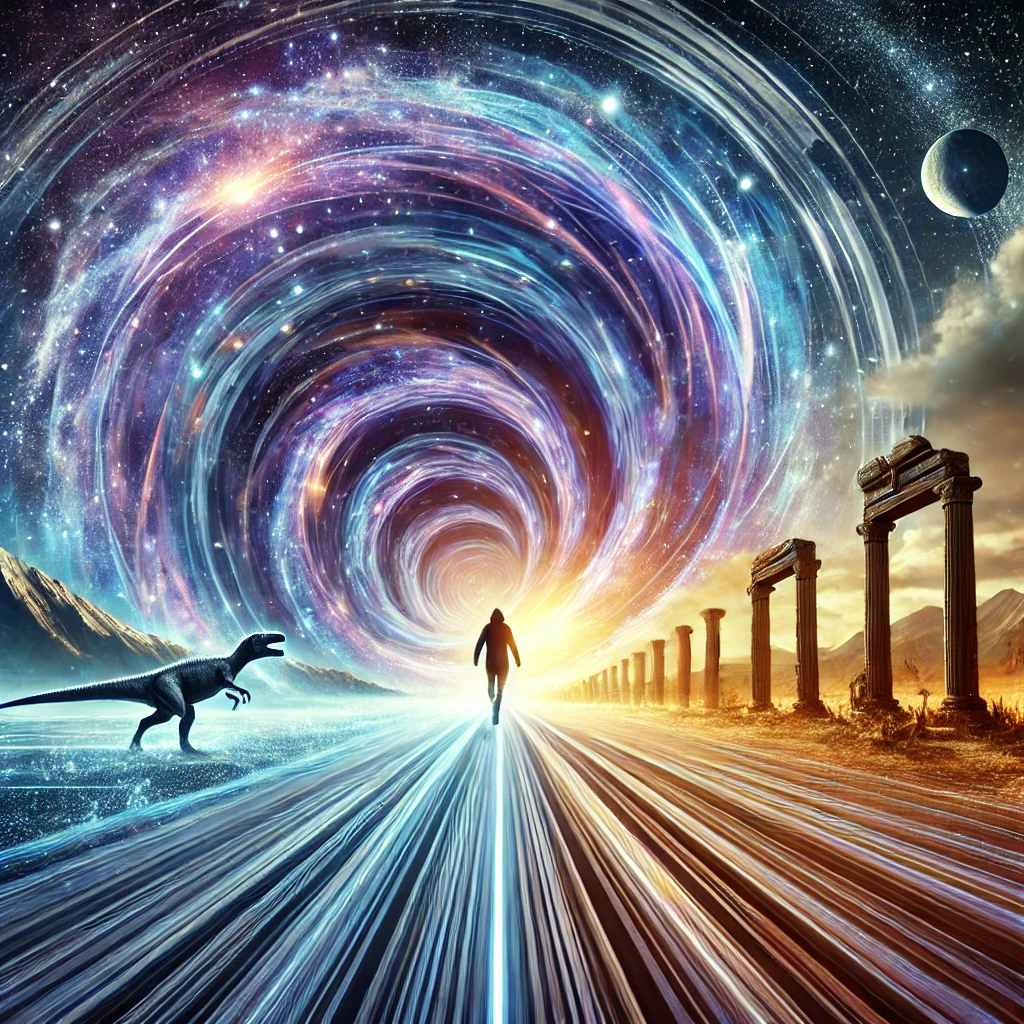About Time Travel

Time travel has captivated the human imagination for centuries. It is the concept of moving between different points in time, much like we move through space. The allure of being able to witness historical events, meet legendary figures, or even glimpse the future is a tantalizing thought that has inspired countless stories, films, and theories.
Imagine stepping into a machine that whisks you away to the roaring twenties. You find yourself surrounded by flappers and jazz music, with the scent of prohibition-era cocktails wafting through the air. Here, you could dance the Charleston in a lavish speakeasy, interacting with figures like F. Scott Fitzgerald and experiencing a world that feels both foreign and familiar.
As you adjust the settings on your time machine, you decide to take a leap further back to ancient Rome. Imagine walking through the bustling streets filled with merchants, soldiers, and citizens. The grandeur of the Colosseum looms in the distance, and you hear the excited roars of the crowd as gladiators fight for glory. With the sights, sounds, and smells surrounding you, you can truly immerse yourself in a pivotal moment in history.
Alternatively, the future ignites an entirely different kind of wonder. What will society look like in 100 years? Stepping into a futuristic world, you might be greeted by flying cars, advanced robotics, and technologies beyond your wildest dreams. It prompts critical questions—how will humanity adapt, and what challenges will we face as we push the boundaries of our capabilities?
However, time travel is not without its paradoxes and dilemmas. The "grandfather paradox" remains a popular topic of discussion: if you were to travel back in time and accidentally prevent your grandfather from meeting your grandmother, would you ever be born? Such questions force us to explore the implications of altering timelines and the fragile nature of history.
Throughout literature and cinema, time travel has served as a powerful narrative device. From H.G. Wells's classic "The Time Machine" to the beloved "Back to the Future" series, storytellers have used the concept to explore complex themes of regret, choice, and destiny. The idea that our actions can ripple through time and have profound effects on the future adds an exhilarating layer to storytelling.
In modern discussions, scientists ponder the feasibility of time travel. While theories such as wormholes and the curvature of spacetime exist, practical applications remain speculative. Quantum mechanics introduces a realm where time may not be linear, but the ability to traverse it remains a distant dream.
As we move forward in our understanding of the universe, the fascination with time travel continues to thrive. It encourages us to reflect on our past, consider our present actions, and contemplate what the future holds. Time travel, though hypothetical, serves as a mirror to our desires and aspirations, prompting us to dream beyond the confines of our reality.
Ultimately, whether through stories, theories, or dreams, the adventure of time travel invites us to explore the vast tapestry of existence, reminding us that every moment is precious, and every choice counts.
CLIENTS
This is a space to list examples of some of your clients.
AWARDS
Award 1: Provide details of an award you won. Award 2: Provide details of an award you won.
PUBLICATIONS
This is a space to list any publications your work has been featured in.